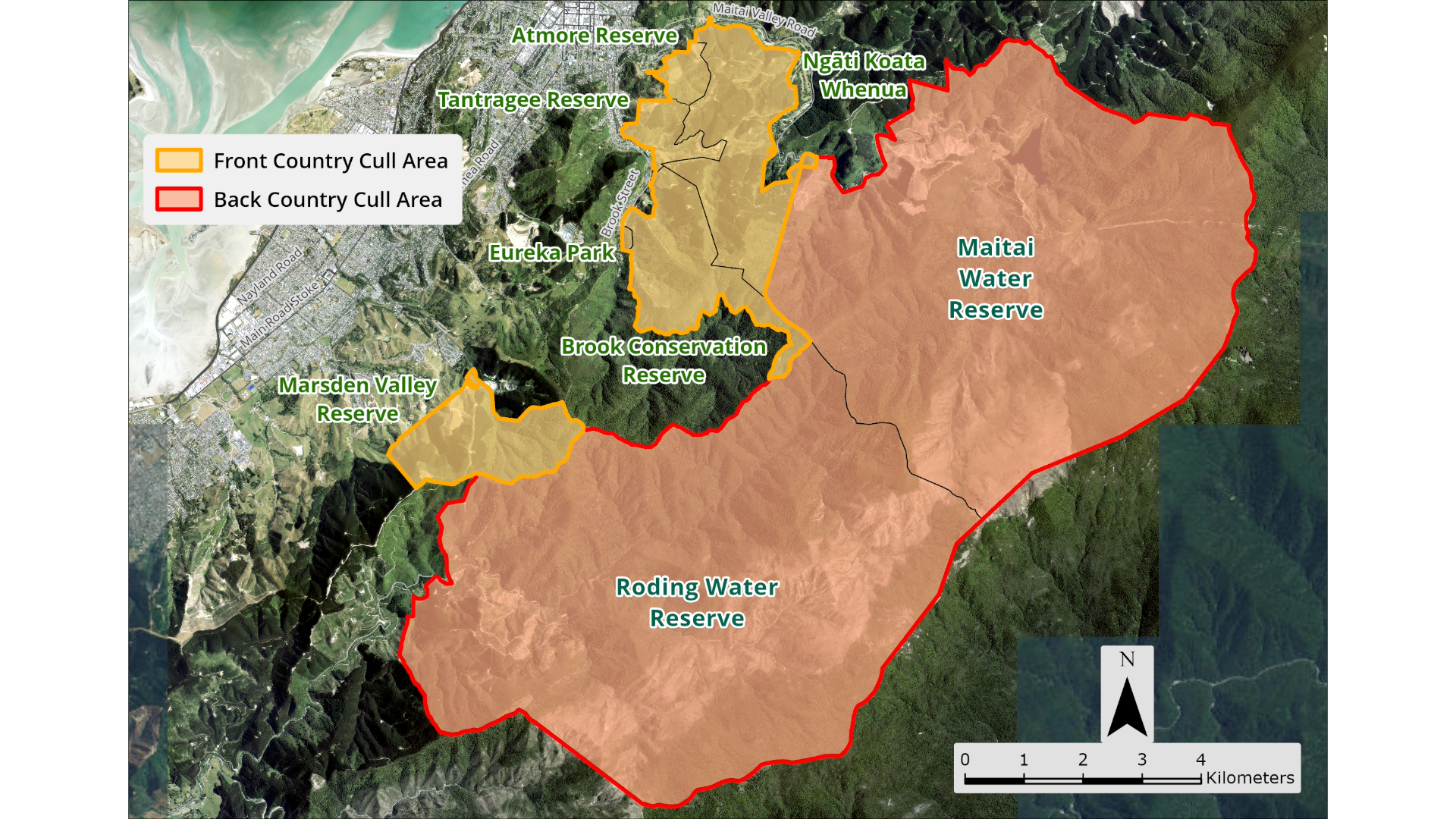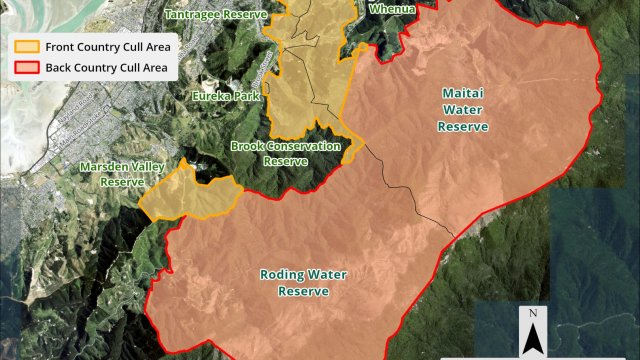Annual front and back country cull begins in May
11/04/2024 10:37am
Nelson City Council, Ngāti Koata and Tasman Pine Forests Ltd (TPFL) have contracted a team of professional hunters, Trap and Trigger Ltd, to carry out a cull of wild goats, pigs and deer across our front and back country reserves.
This year’s cull will take place Wednesday 1 May to Saturday 18 May and will require the full closure of reserves.
Front country hunting
Front country hunting will take place in Eureka Park and the Atmore, Tantragee (including Codgers), Brook Conservation, and Marsden Valley reserves. Hunting will also occur on nearby Ngāti Koata land around Fringed Hill, Groom Creek, and Codgers. These reserves and areas will be closed during the week but reopen to all users during weekends from midnight Friday till 11:59pm Sunday.
Some beginner level trails in Codgers will remain open. These include the following access trails:
- Young Codgers
- Saddle Rd
- Coppermine Trail (to the hairpin on Tantragee Road)
- Pipeline
- Tasman Journeys up to Jacks Hub (top of Crazy Horse/ Firball Dropout)
- Tu Meke
- Gully
- Firball Dropout / Firball below Dropout
- Crazy Horse
Walnut (the pedestrian/horse track that goes along Tantragee Road from Andrews Farm Reserve) and Codgers Hub at Andrews Farm Reserve will also remain open.
Signage, fencing and tape will be installed to cordon off closed trails. Please respect these closures--contractors will be hunting in other areas of Codgers and the other reserves already advised.
Back country hunting
Back country hunting will take place in the Maitai and Roding Water reserves. These reserves will be fully closed during the cull. However, the Coppermine Trail will be open on weekends.
Warning signs and/or barriers will be in place at entry points for each reserve.
Hunters will use suppressed (silenced) rifles with subsonic (quiet) ammunition in areas closer to residential zones. They’ll also use dogs, thermal imaging, drones, and helicopters to complete their work.
Acting Group Manager Community Services Martin Croft says annual culls are necessary to protect our native flora and fauna from pests.
“Goats and deer can quickly eat all the plants that make up the understory of a forest, and pigs dig up and destroy the soil, killing seedlings and saplings and eating many native invertebrates in the process,” he says.
“Since the annual cull programme started, the number of animals culled each year has been declining while the land area covered has continued to expand, indicating a lower density of animals in the reserves.
“However, keeping the number of ungulates in reserves as low as possible must be an ongoing effort to keep numbers under control and allow our forests time to regenerate.”
This will be the fifth year Council has conducted a cull in these reserves. Recent reports of deer, goats and pigs near tracks and households indicate numbers are increasing again to the point where a cull is required.
Meat will be retrieved from the hunt in coordination with Ngāti Koata hunters, who will work alongside Trap and Trigger Ltd to retrieve carcasses that are easily accessible.


